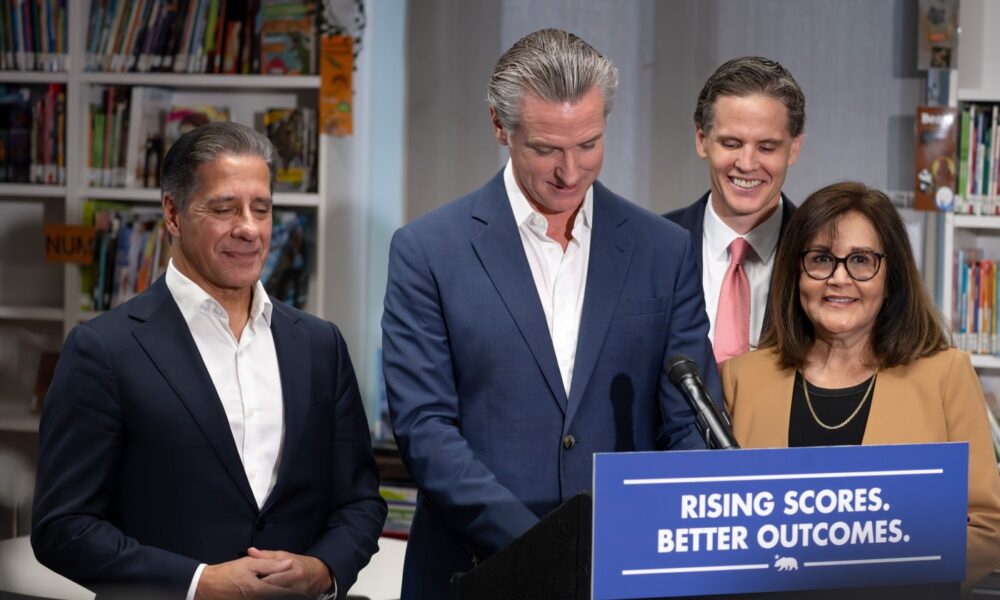UPDATE: New reports from the California Department of Education reveal a staggering education crisis, with over 50% of students failing to meet basic standards in English. Alarmingly, nearly two-thirds fell short in math and science, highlighting a persistent and troubling trend in California’s education system.
Authorities confirmed that despite a modest increase of 1.5% to 2% in scores this year, overall performance remains dismal and below pre-pandemic levels. Sacramento politicians have attempted to frame this slight uptick as progress, but parents and educators are expressing deep concerns that this is nothing more than political spin.
In conversations with parents across the state, many feel alienated from their children’s education, struggling to get clear answers about curriculum and student performance. Teachers, too, report feeling overwhelmed and unsupported, grappling with larger class sizes and significant behavioral challenges in the classroom.
The Legislative Analyst’s Office (LAO) highlights that student outcomes are closely linked to school climate and attendance. Yet, teachers are lacking the necessary tools and resources to address these challenges, leading to high levels of stress and turnover. Many educators are leaving the profession, citing inadequate support and a disconnect from their primary mission: teaching.
This crisis is not merely a symptom of current challenges; it reflects decades of political decisions prioritizing special interests over students. Suzette Martinez Valladares, representing California’s 23rd Senate District, pointed out that despite spending $133.8 billion on K-12 education—more than the total defense budgets of many countries—California’s achievement gaps for low-income, Latino, and Black students remain “large and persistent.”
The situation is compounded by ongoing legislative efforts that restrict educational options. For instance, Assembly Bill 84 aims to triple oversight costs for charter schools while exempting traditional school districts from similar scrutiny. Although met with backlash from the charter school community and ultimately failing this session, it is expected to return in January.
Meanwhile, Senate Bill 414, which sought to improve oversight and transparency for charters, was vetoed, succumbing to union pressures despite its potential benefits. Valladares also introduced SB 612 to enhance career and technical education pathways for high school students, but it was blocked due to political agendas rather than educational merit.
As California grapples with these systemic failures, taxpayers are left questioning the return on their investment in education. The LAO warns that without significant reforms, millions of students could graduate unprepared for college or the workforce—a scenario that poses a dire economic threat.
Parents across the state are demanding accountability and reform. They seek schools that work, teachers who are supported, and an educational system that truly prepares their children for the future.
The urgency of this situation cannot be overstated. As the state prepares to face another legislative session, the stakes are high. California must prioritize educational reforms that empower families, support teachers, and enhance student outcomes.
What happens next? With the legislative session approaching in January, advocates for educational reform are gearing up to push back against restrictive policies and advocate for schools that prioritize student success.
This crisis did not happen by accident, and fixing it will require a concerted effort to challenge the status quo and place the needs of students at the forefront. Californians deserve a robust education system that opens doors to opportunity for every child.
Parents, teachers, and community members are urged to stay informed and engaged as this critical situation develops. Our kids deserve better. California deserves better.







